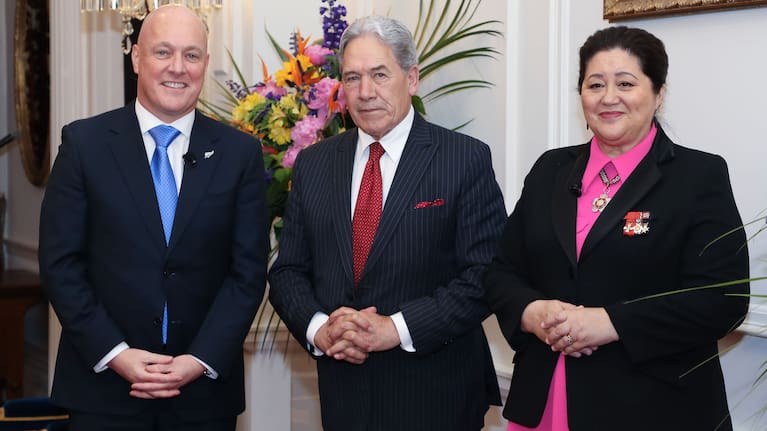Analysis: As parliament prepares to sit for the first time with the new coalition government, Q+A presenter Jack Tame considers some of the big decisions made in the 2023 political year.
What if Jacinda Ardern had stayed on?
The election campaign was upended on January 19 when Jacinda Ardern announced her resignation as Prime Minister.
The announcement was closely guarded and caught many of her colleagues and opponents by surprise.
Filling the vacuum left by her resignation had the potential to divide Labour’s caucus, but the transition to Prime Minister Chris Hipkins was a masterclass in political management - uncontested and uneventful.
Given the growing intensity of opposition to Jacinda Ardern’s leadership, stepping down when she did may have preserved elements of her personal legacy, but Labour strategists must wonder if contesting an election with Ardern at the helm would have been any worse than the party’s eventual result of 27%.
What if Chris Hipkins had called a snap election?
Like many new Prime Ministers, Chris Hipkins enjoyed a honeymoon period of sorts.
Distinguishing himself from his predecessor, he immediately set about scrapping several of his party’s policies for what he called a ‘back-to-basics’ agenda.
But Hipkins chose to stick with the October election date announced by Ardern in the preamble to her resignation.
For three months under his leadership, opinion polls showed Labour leading National, and a Labour-Greens-Te Pāti Māori combination leading a National-Act alternative.
But as the election grew closer, Labour’s support melted away.
What if Christopher Luxon had ruled out working with NZ First?

For months in the lead up to the election, National leader Christopher Luxon refused to be drawn on the possibility of Winston Peters returning to parliament.
Although he assertively ruled out any governing deal with Te Pāti Māori, he refused to make a similar call with New Zealand First, saying only that he’d address the issue if or when the party polled above 5%. It was all the space Peters needed.
Masterfully timing its election run, New Zealand First didn’t even confirm its policy platform until well after voting had opened.
From relative oblivion in the middle of the year, New Zealand First has now negotiated significant policy wins, cabinet positions, and the role of Deputy Prime Minister.
Political pundits are fond of saying you should never rule out Winston Peters, but after just the first week as a coalition government, Christopher Luxon must be wondering if perhaps he should have.
What if the Greens and National had considered negotiating?

Between them, National and the Greens had the numbers to form a two-party support deal.
Instead, after a long period of negotiations, National has formed a three-party coaltion which includes numerous ACT and New Zealand First policies vehemently opposed by Green MPs.
Policies around gender, te reo Māori, benefits, and the Treaty of Waitangi might not have been progressed if Green members could have overcome their historical distaste for National. Climate and public transport policies could have been up for debate.
National had options to form a government. The Greens didn’t. But within the confines of MMP, some Green members must be questioning if it’s in the continued interests of progressing their policy agenda if they continue to rule out working with one of the two major parties.





















SHARE ME